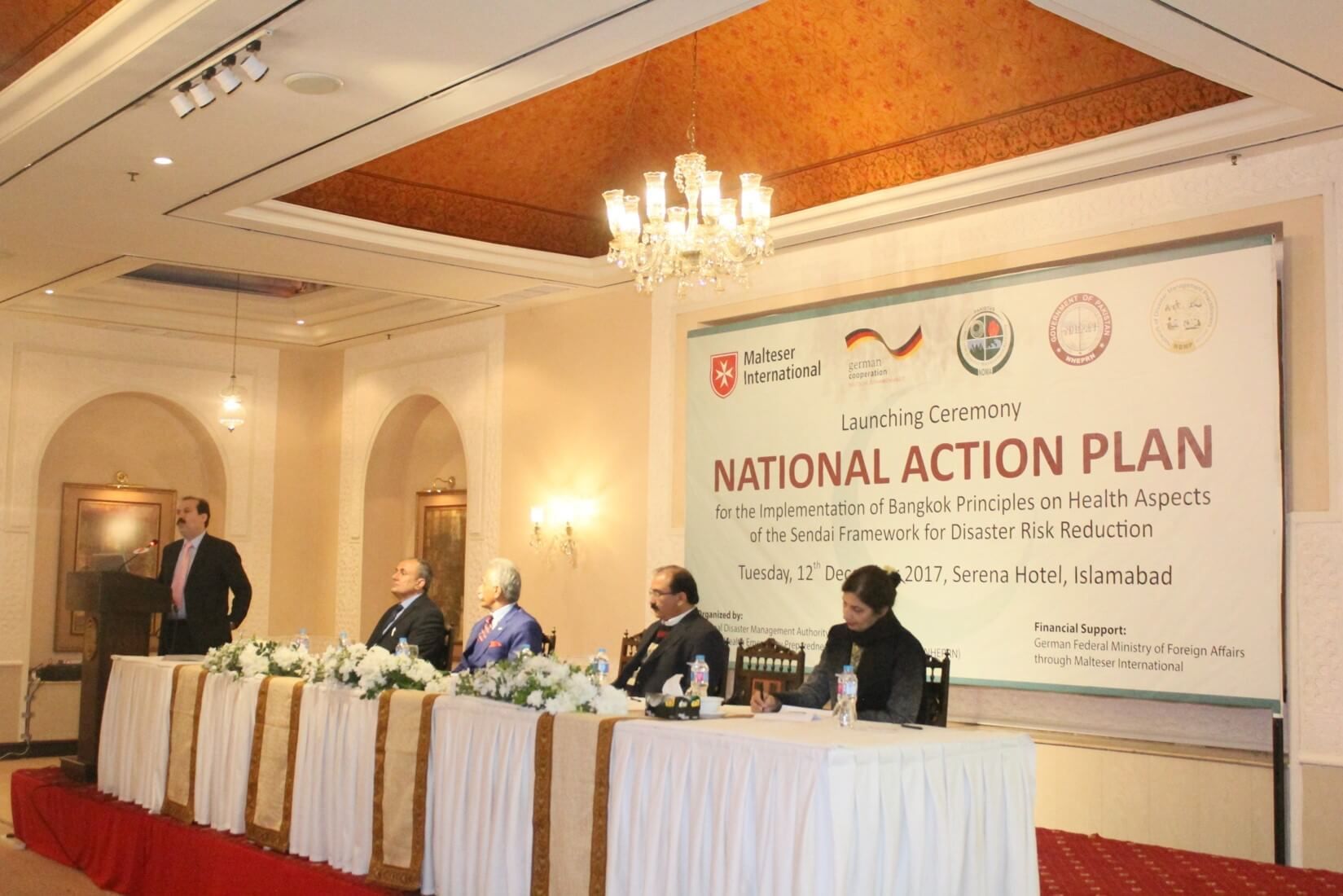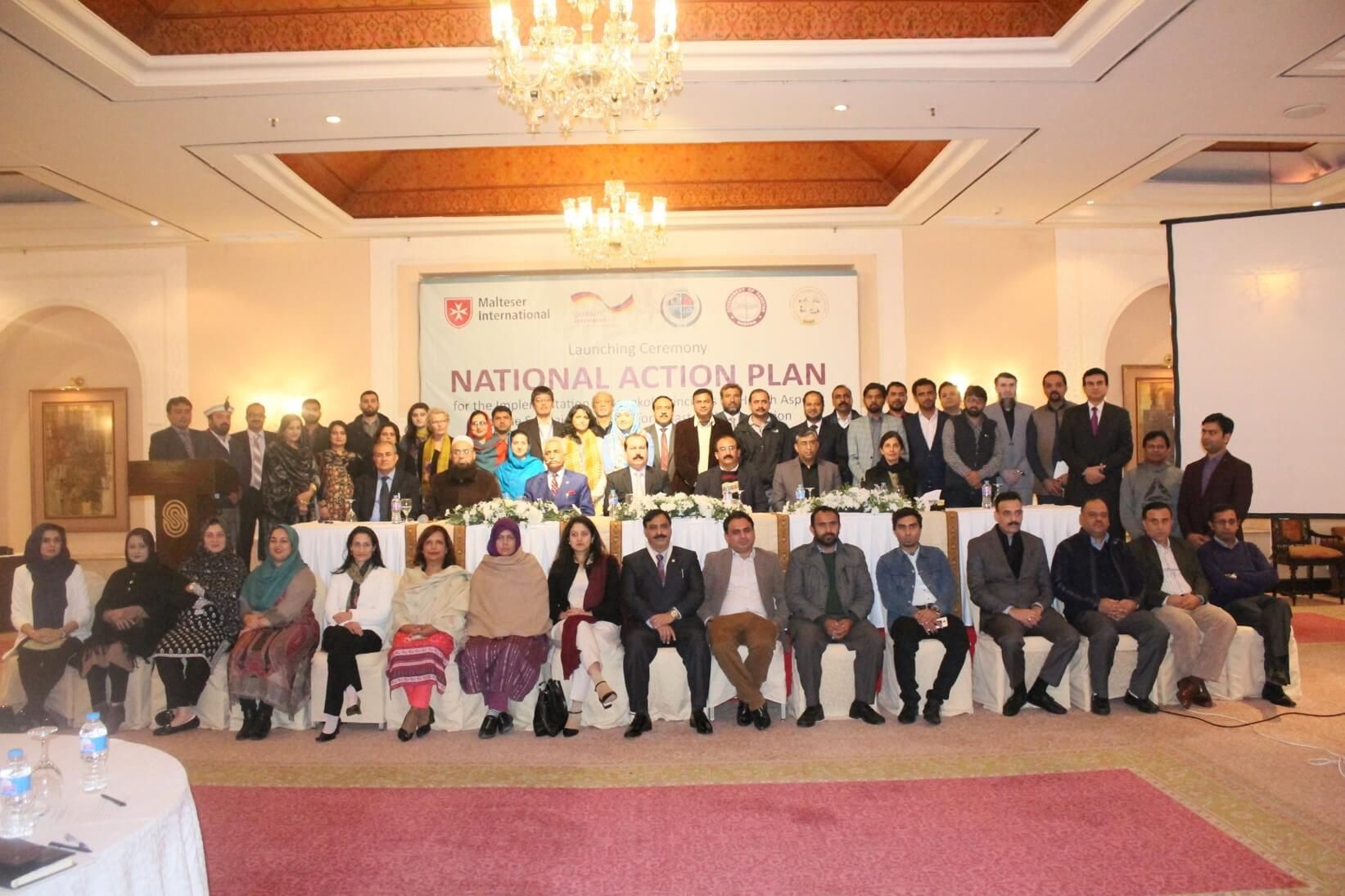Cologne/Islamabad. The Government of Pakistan on Tuesday, December 12 2017, launched a Malteser International-backed National Action Plan (NAP) for the Implementation of Bangkok Principles on Health and DRR Aspects of Sendai Framework of Disaster Risk Reduction.
The action plan draws on the so-called ‘Bangkok Principles’ which place strengthened coordination at the heart of efforts to reduce risk from natural disasters. They call for an inter-operable and multi-sectoral approach to promote systematic cooperation, integration and, ultimately, coherence between disaster risk management and the health sector.
The plan, whose development was led by Malteser International, emerged from an extensive consultation process with various provincial disaster management authorities and health institutions, as well as UN agencies and other international organizations.
Applauding the efforts of Malteser International and other stakeholders in the development of the plan, the Special Representative of the National Disaster Management Authority (NDMA), Mr. Idrees Mahsud noted that the plan not only identified gaps, but also proposed solutions to bridge disaster management and health-related activities at national, provincial and district levels across the country.
The document was handed over to the National Disaster Management Authority (NDMA) and National Health Emergency, Preparedness and Response Network of the Government of Pakistan which will be responsible for the nation-wide implementation of the Action Plan.
Since the earthquake of 2005, Malteser International has been active in Pakistan in the fields of health and Disaster Risk Reduction as it aims to strengthen the existing capacities across the country in responding to various health emergencies and reducing the threats posed by the effects of disasters and emergencies. Malteser International's project which was the framework for the development of this action plan is funded by the German Foreign Office and Germany's relief coalition, Aktion Deutschland Hilft.











